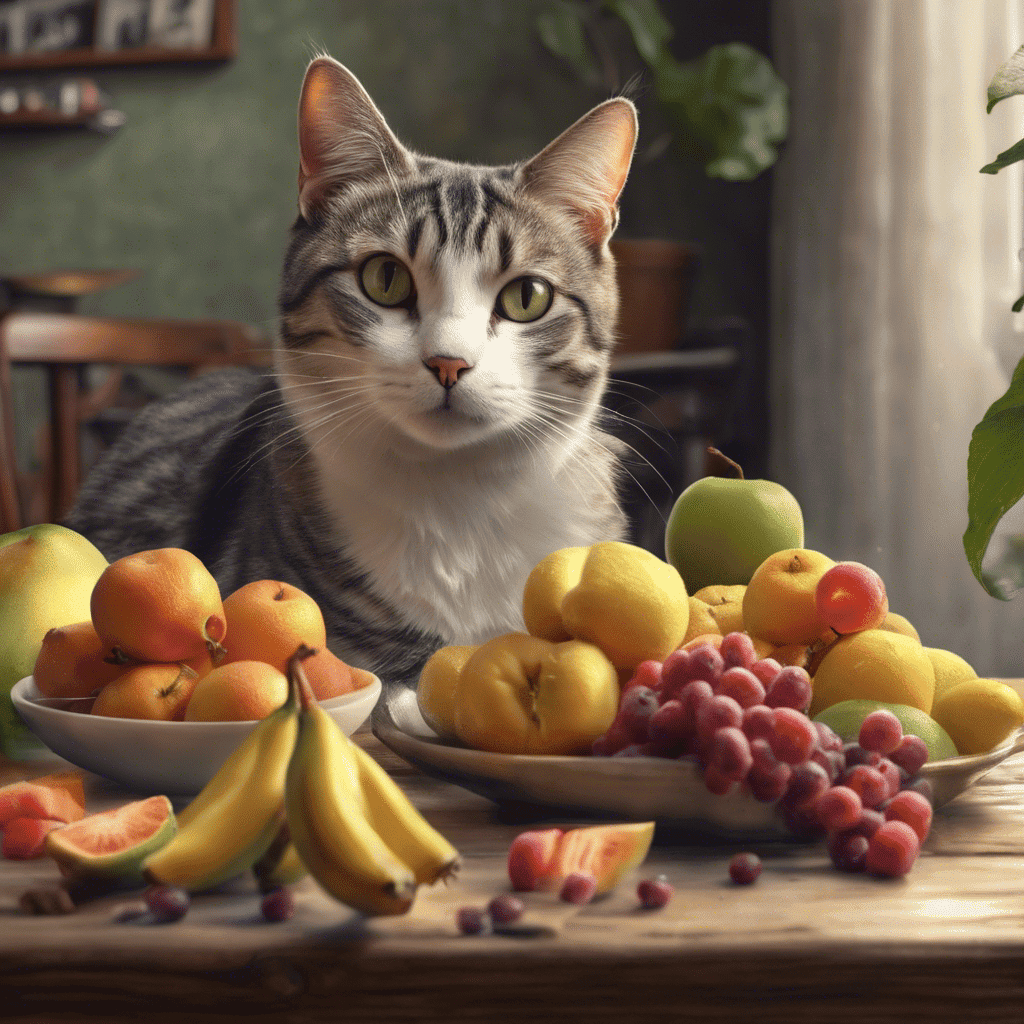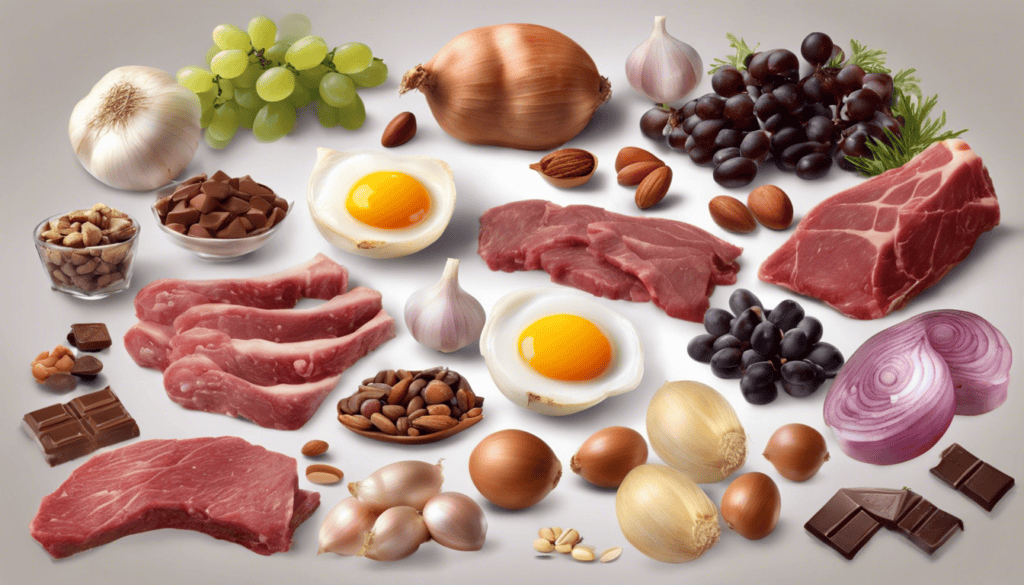
As a pet owner, you’ve probably wondered whether your playful little furball can safely enjoy bananas. You’re not alone in this curiosity. Many of us have pondered the same question. The good news is that bananas are non-toxic to kittens, so they won’t cause immediate harm if eaten. However, it’s important to exercise caution when feeding bananas to your kitten. While they do offer some beneficial vitamins and minerals, bananas are also relatively high in sugar, which isn’t ideal for a kitten’s diet.
To make informed decisions, it is recommended to weigh the benefits against the potential risks and ensure that any treats, including bananas, align with your kitten’s overall nutritional needs.
Can Kittens Eat Bananas?
What You Need to Know
Bananas are not toxic to kittens, so they won’t cause immediate harm. However, they don’t naturally fit into a kitten’s diet. Bananas contain sugar, which isn’t ideal for kittens. Too much sugar can lead to health issues like obesity and diabetes. You should always consider the overall nutritional balance when introducing new foods to your kitten.
A small piece of banana occasionally won’t hurt, but it shouldn’t become a regular part of their diet.
Scientific Facts
Understanding the science behind feeding bananas to kittens can help you make informed decisions. Bananas are rich in vitamins like vitamin C and B6, and they also contain minerals such as potassium and magnesium. These nutrients can be beneficial, but they aren’t essential for kittens. Kittens require a diet high in protein and fat to support their rapid growth and development. Bananas don’t provide these necessary nutrients. Instead, they offer carbohydrates and sugars, which can disrupt a kitten’s dietary needs if consumed in large amounts.
While bananas have some nutritional value, they don’t align with the dietary needs of kittens. Always prioritize foods that support their growth and health. If you’re considering adding bananas or any other human food to your kitten’s diet, consult with a veterinarian first. They can provide guidance tailored to your kitten’s specific needs.
Nutritional Benefits of Bananas for Kittens
Vitamins and Minerals
Bananas pack a punch when it comes to vitamins and minerals. They contain vitamin C, which acts as an antioxidant, and vitamin B6, which supports brain health. Potassium, another key component, helps maintain heart health and muscle function. Although these nutrients are beneficial, they aren’t essential for kittens. Your kitten’s primary diet should focus on protein and fat to support their growth. However, a small piece of banana now and then can provide a little nutritional boost without causing harm.
Here’s a quick breakdown of the vitamins and minerals found in bananas:
|
Nutrient |
Amount per 100g |
Benefit for Kittens |
|---|---|---|
|
Vitamin C |
8.7 mg |
Antioxidant |
|
Vitamin B6 |
0.4 mg |
Supports brain health |
|
Potassium |
358 mg |
Maintains heart and muscles |
|
Magnesium |
27 mg |
Supports bone health |
Fiber Content
Fiber is another component that bananas offer. It aids in digestion and can help regulate bowel movements. For kittens, a little fiber can be beneficial, especially if they’re experiencing minor digestive issues. However, too much fiber might lead to digestive upset. You should always introduce new foods gradually and observe how your kitten reacts.
A small slice of banana can be a gentle way to add a bit of fiber to their diet without overwhelming their system.
Potential Risks of Feeding Bananas to Kittens
You might think that sharing a banana with your kitten is harmless. After all, bananas are a healthy snack for humans. However, when it comes to kittens, you need to be cautious. Let’s explore the potential risks of feeding bananas to your furry friend.
Sugar Content
Bananas are naturally high in sugar. While this might not be a concern for you, it can pose significant health risks for your kitten. Cats, including kittens, have a limited ability to process sugars. Their bodies aren’t designed to handle large amounts of carbohydrates.
When you feed your kitten too much sugar, it can lead to serious health issues like obesity and diabetes.
Scientific Research Findings:
-
Impact of Sugar on Cats’ Health: Excessive sugar intake can lead to obesity and diabetes in cats.
-
Research on Sugar and Digestive Issues in Cats: High sugar diets can cause hyperglycemia and insulin resistance.
Here’s a quick look at the sugar content in bananas:
|
Nutrient |
Amount per 100g |
Potential Risk for Kittens |
|---|---|---|
|
Sugars |
12.2 g |
Obesity, Diabetes |
As you can see, the sugar content in bananas is quite high. This is why it’s crucial to limit your kitten’s banana intake. A small piece as an occasional treat is fine, but it shouldn’t become a regular part of their diet.
Digestive Issues
Another risk of feeding bananas to kittens is digestive upset. Kittens have sensitive stomachs, and introducing new foods can sometimes lead to digestive problems. Bananas contain fiber, which can be beneficial in small amounts. However, too much fiber can cause digestive issues like diarrhea or constipation.
Scientific Research Findings:
-
Choosing the Best Diet for Kittens: Kittens should consume less than 10% carbohydrates to avoid diarrhea.
-
Effects of Carbohydrates on the Microbiome: Simple carbohydrates can alter the microbiome in cats, potentially leading to digestive issues.
If you decide to give your kitten a taste of banana, start with a tiny piece and observe how they react. If you notice any signs of digestive distress, it’s best to avoid giving them bananas in the future.
Safe Feeding Practices for Kittens
You might feel tempted to share your snacks with your kitten, especially when they look at you with those curious eyes. But when it comes to feeding cats bananas, you need to follow some safe practices. Let’s explore how to feed banana to your cat in a way that keeps them healthy and happy.
Portion Sizes
When offering bananas to your kitten, portion size matters. Kittens have small stomachs and specific dietary needs. A tiny slice of banana, about the size of your thumbnail, is enough for a kitten. This small amount ensures they enjoy a treat without overloading on sugar or disrupting their balanced diet.
Remember, bananas should only be an occasional treat, not a regular part of their meals.
Expert Testimony:
-
Dr. Deb Zoran, a professor at Texas A&M College of Veterinary Medicine & Biomedical Sciences, emphasizes the importance of maintaining a balanced diet for kittens. She advises that kitten food should be nutritionally complete and balanced, with precise nutrient percentages.
Preparation Methods
Knowing how to feed your cat bananas safely involves proper preparation. Always peel the banana first, as the peel can be difficult for kittens to digest. Cut the banana into small, manageable pieces to prevent choking hazards. You can mash the banana slightly to make it easier for your kitten to eat. Avoid adding any sweeteners or toppings, as these can introduce unnecessary sugars or harmful ingredients.
Here’s a quick guide to preparing bananas for your kitten:
|
Step |
Action |
Reason |
|---|---|---|
|
1. Peel |
Remove the banana peel |
Peels are hard to digest |
|
2. Slice |
Cut into small pieces |
Prevents choking |
|
3. Mash |
Lightly mash the banana |
Easier for kittens to eat |
|
4. Serve |
Offer a small portion |
Keeps sugar intake low |
By following these steps, you ensure that your kitten enjoys their treat safely. Always observe your kitten after introducing any new food to watch for any adverse reactions. If you notice any digestive issues or changes in behavior, consult your veterinarian for advice.
Common Mistake to Avoid When Feeding Bananas
You might think that giving your kitten a little extra banana is harmless. After all, they seem to enjoy it, and you love seeing them happy. But overfeeding bananas can lead to some issues you might not expect. Let’s dive into why moderation is crucial when it comes to this fruity treat.
Overfeeding
When you feed your kitten too many bananas, you risk disrupting their balanced diet. Kittens need a diet rich in protein to support their growth and energy needs. Bananas, while tasty, don’t provide the necessary nutrients that kittens require. Instead, they can fill up on bananas and miss out on more nutritionally appropriate foods.
Here’s a quick comparison of what kittens need versus what bananas offer:
|
As you can see, bananas don’t align well with a kitten’s dietary needs. Overfeeding can lead to nutritional deficiencies and health problems down the line.
So, how to feed your cat bananas safely? Stick to small, occasional treats. A tiny slice now and then is enough to satisfy their curiosity without compromising their health. Always prioritize their main meals, which should be specifically formulated for kittens. This ensures they get all the essential nutrients they need to grow strong and healthy.
Remember, your kitten’s health is the top priority. If you’re ever unsure about introducing new foods, consult with your veterinarian. They can provide guidance tailored to your kitten’s specific needs, ensuring a happy and healthy life for your furry friend.
Alternative Fruits Safe for Kittens
You might wonder if there are other fruits besides bananas that your kitten can enjoy. Sharing a healthy snack with your furry friend can be a delightful experience. However, it’s crucial to know which fruits are safe and beneficial for kittens. Let’s explore some suitable options that can add variety to your kitten’s diet.
Suitable Options
Kittens can safely enjoy a few fruits in moderation. These fruits offer different flavors and textures, making snack time exciting for your little companion. Here are some fruits that are generally safe for kittens:
-
Apples: Remove the seeds and core before offering a small slice. Apples provide fiber and vitamin C.
-
Blueberries: These tiny fruits are packed with antioxidants. You can offer them whole or mashed.
-
Cantaloupe: This melon is hydrating and contains vitamins A and C. Cut it into small, manageable pieces.
-
Watermelon: Ensure it’s seedless and cut into small chunks. Watermelon is refreshing and hydrating.
-
Strawberries: These berries are rich in vitamin C. Offer them in small, bite-sized pieces.
Here’s a quick comparison of the nutritional content of these fruits:
|
Fruit |
Vitamin C (mg) |
Fiber (g) |
Hydration Benefit |
|---|---|---|---|
|
Apples |
4.6 |
2.4 |
Moderate |
|
Blueberries |
9.7 |
2.4 |
Low |
|
Cantaloupe |
36.7 |
0.9 |
High |
|
Watermelon |
8.1 |
0.4 |
Very High |
|
Strawberries |
58.8 |
2.0 |
Moderate |
These fruits can provide a fun and nutritious treat for your kitten. Always remember to introduce them gradually and in small amounts.
Introducing New Foods
When you decide to introduce new foods to your kitten, it’s essential to do so carefully. Kittens have sensitive stomachs, and sudden changes in their diet can lead to digestive issues. Here are some tips for introducing new fruits:
-
Start Small: Offer a tiny piece of fruit and observe your kitten’s reaction. Look for any signs of allergies or digestive upset.
-
Monitor Reactions: Keep an eye on your kitten after they try a new fruit. If they show any signs of discomfort, discontinue the fruit immediately.
-
Mix with Regular Food: You can mix a small amount of fruit with their regular food to make the transition smoother.
-
Consult Your Vet: If you’re unsure about a particular fruit, consult your veterinarian. They can provide guidance based on your kitten’s specific needs.
Introducing new fruits can be a fun way to enrich your kitten’s diet. Just remember to prioritize their health and well-being by keeping treats occasional and balanced with their primary nutrition.
Verdict – Is it Recommended?
While kittens can eat bananas, it’s not recommended as a regular part of their diet. The occasional small piece might be fine, but always prioritize their primary nutrition. Remember, your kitten’s health and well-being should always come first. If you’re ever in doubt, reach out to a professional for advice.
You might wonder if your kitten can enjoy a banana treat. Yes, they can, but only in moderation. Balance is crucial for a healthy diet. Kittens need a diet rich in protein and essential nutrients to grow strong and healthy. Bananas, while non-toxic, don’t provide these vital nutrients. Consider offering alternative fruits like apples or blueberries for variety. Always consult with a veterinarian for personalized advice. They can guide you on the best dietary choices for your kitten, ensuring they thrive into adulthood. Remember, your kitten’s health and happiness are the top priorities.

In her previous life, Lisa traveled extensively, both for work and leisure. After the pandemic struck, Lisa locked up her luggage and adopted a cat ever since.
Lisa is now an avid cat lover, she devotes most of her free time serving as butler to her adorable feline at home. When she is not with her cat, she can be seen using her phone sourcing for the latest cat supplies online.


